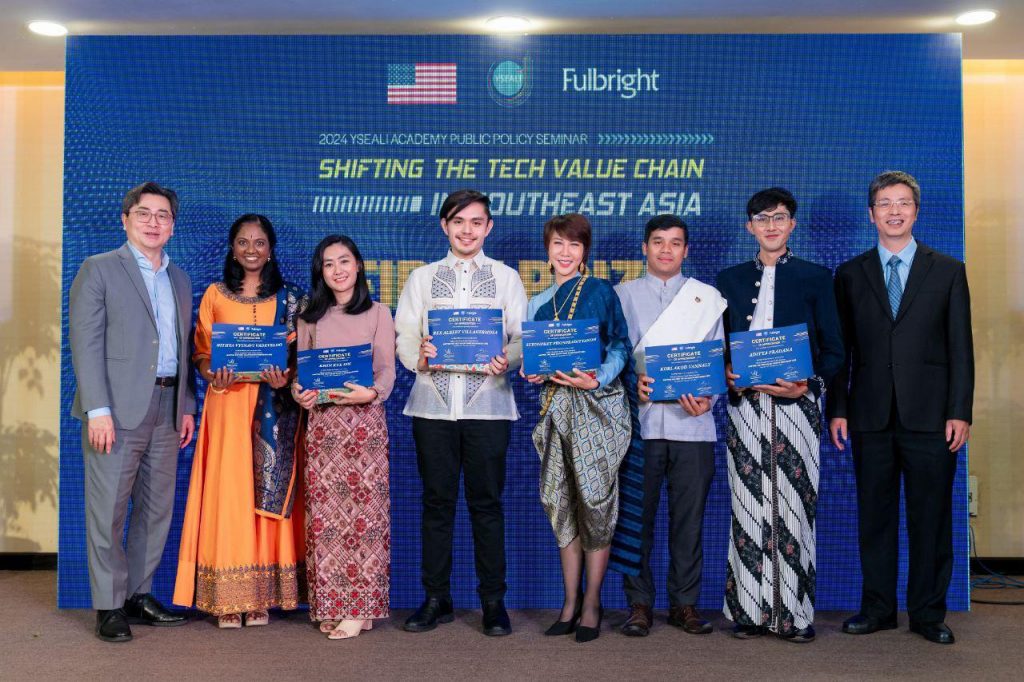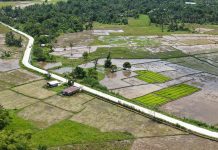
TACLOBAN CITY– A Europe-based Filipino Artificial Intelligence (AI) engineer and data scientist has been recognized as part of a winning multinational team at the Young Southeast Asian Leaders Initiative (YSEALI) Academy Public Policy Seminar, held at Fulbright University Vietnam in Ho Chi Minh City.
The seminar explored the future of Southeast Asia’s technology landscape under the theme “Shifting the Tech Value Chain in Southeast Asia.”
Rex Albert Villahermosa, a University of the Philippines (UP) Diliman graduate in Molecular Biology and Biotechnology and an alumnus of the Philippine Science High School-Eastern Visayas Campus, was among the 33 delegates competitively selected from across Southeast Asia. His team excelled in tackling complex policy issues related to the U.S.-China chip war and its implications for the region.
“This memorable experience provided an unparalleled opportunity to engage with fellow Southeast Asian innovators and policymakers on the complexities of the global chip ecosystem. Our collaborative discussions have shed light on how our region can strategically navigate the U.S.-China chip war and ensure sustainable technological advancement,” Villahermosa said in an interview with Leyte Samar Daily Express on December 20, 2024.
The seminar brought together delegates to explore strategic approaches to sustainable technological growth amidst the escalating U.S.-China chip conflict. Villahermosa emphasized the importance of fostering a resilient and inclusive tech landscape that benefits Southeast Asia.
Villahermosa, who pursued further studies in AI in the Netherlands with a focus on semiconductor technology and AI chips, was joined in the winning team by delegates Nithya Vysnavi Vadeveloo (Malaysia), Sukonphet Phonpradiitanon (Thailand), Aditya Pradana (Indonesia), Khin Kye Sin (Myanmar), and Korlakod Vannaly (Laos).
“Through collaborative dialogues, my teammates and I demonstrated the potential of innovative semiconductor solutions. Our work emphasized the critical need for cooperation and a shared commitment, especially amidst present geopolitical challenges,” he said.
During the seminar, the participants analyzed the geopolitical complexities of the chip war and its impact on Southeast Asia’s technological ecosystem. Villahermosa and his team presented innovative strategies for Southeast Asian countries to assert their role in global technology value chains.
“By fostering strategic partnerships and embracing cutting-edge technologies, we aim to drive forward the semiconductor landscape in Southeast Asia and beyond,” Villahermosa said, highlighting their team’s vision for the region’s technological progress.
The seminar culminated in a presentation that addressed crucial questions about how Southeast Asian countries can navigate the shifting geopolitical landscape and seize opportunities for sustainable innovation.
“As the chip war intensifies, we remain dedicated to informing policy decisions. We hope that our journey stands as an inspiration for other policymakers, scientists, and innovators aiming to shape the future of Southeast Asian technology,” Villahermosa added.
(RONALD O. REYES)



